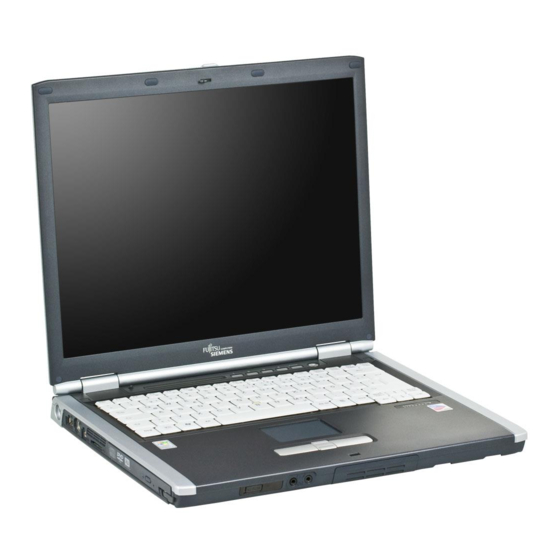
Fujitsu Lifebook E8020D Manuals
Manuals and User Guides for Fujitsu Lifebook E8020D. We have 4 Fujitsu Lifebook E8020D manuals available for free PDF download: User Manual, Bios Manual
Advertisement
Fujitsu Lifebook E8020D User Manual (120 pages)
Fujitsu Lifebook E8020: User Guide
Table of Contents
Advertisement
Advertisement
Related Products
- Fujitsu Lifebook E8010
- Fujitsu Lifebook E8010D
- Fujitsu LifeBook E8000
- Fujitsu Lifebook E8020
- Fujitsu LifeBook E8310
- Fujitsu E8420 - LifeBook - Core 2 Duo 2.26 GHz
- Fujitsu Lifebook E8410
- Fujitsu E8110 - LifeBook - Core 2 Duo 1.66 GHz
- Fujitsu E8210 - LifeBook - Core 2 Duo 1.66 GHz
- Fujitsu LIFEBOOK E734



